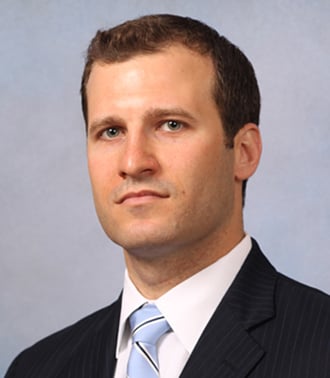Excluding Expert Opinion Impugning Corporate Ethics, Motive and State of Mind
Appeared in Law360 on February 1, 2016. Originally appeared in Kaye Scholer's Product Liability Report.
—by Sheila Boston, Bert Slonim and Daniel Meyers
In product liability litigations there has been an increasing trend for plaintiffs to hire “‘expert’ witnesses whose intended role is more to argue the client’s cause from the witness stand than to bring to the fact-finder specialized knowledge or expertise that would be helpful in resolving the issues of fact presented by the lawsuit.”[i] Plaintiffs typically offer these types of witnesses to: (1) impugn a company’s motive, intent, or state of mind; (2) question a company’s ethical or moral decisions; and/or (3) provide an advocacy-based historical or factual narrative of the product by summarizing the company’s internal documents. This article focuses on how a defendant can successfully bar an expert “storyteller” from improperly lending “their credentials and reputations to the party who calls them without bringing much if any relevant knowledge to bear on the facts actually at issue.”[ii]
Motion to Bar Testimony Under Daubert and Federal Rules of Evidence 702 and 403
When faced with an expert who intends to argue plaintiff’s case from the witness stand, a defendant should file a Daubert motion to exclude such testimony. The motion should advance four main arguments:
- Unreliable: Defendant should argue that plaintiff’s expert’s opinion is unreliable and therefore fails to satisfy Federal Rule of Evidence (FRE) 702. Under FRE 702, courts exclude testimony as unreliable if the expert is not qualified by knowledge, skill, experience, training or education to offer the purported opinion; if the expert’s methodology is unreliable; or if the expert has not reliably applied the methodology to the facts in the case.
- Irrelevant: Defendant should argue that plaintiff’s expert’s subjective, advocacy-based opinions related to the company’s motive, intent, state of mind, and ethics are irrelevant and would not “help the trier of fact understand the evidence” or “determine a fact in issue” as required by FRE 702.
- Invade the Province of the Jury: Defendant should argue that plaintiff’s expert’s “storytelling” testimony is inadmissible under FRE 702 because the jury is capable of interpreting and understanding the documents on their own without the expert’s advocacy-based narrative.
- Unduly Prejudicial: Defendant should argue that even if such testimony were reliable and marginally relevant under FRE 702, the court should preclude such testimony under FRE 403 because the testimony will unfairly prejudice and confuse the jury because of the clout the term “expert” conveys to the jury.
In 2004, in the Rezulin (diabetes medication) multidistrict litigation, Judge Lewis A. Kaplan of the Southern District of New York issued a landmark decision wherein he granted, in part, defendants’ motion in limine and excluded plaintiffs’ experts from offering opinions about: (1) the motive, intent, and state of mind of defendant and others; (2) defendant’s ethical behavior; and (3) the history of Rezulin.[iii] Since Judge Kaplan’s Rezulin decision in 2004, defendants around the country have successfully argued that such testimony should be excluded.[iv] Although this article primarily focuses on excluding expert testimony in federal courts, most states have laws that closely resemble FRE 702 and 403 and, thus, defendants should consider filing a similar motion when faced with a “storytelling” expert in state court.
Testimony Regarding a Company’s Motive, Intent, and State of Mind Is Inadmissible
It is common for plaintiff’s experts to include in their expert reports conclusory statements about a defendant’s motive, intent and state of mind. For example, these experts often purport to offer opinions such as: “defendant was motivated by profits and therefore. . .”; “defendant intentionally. . .”; “defendant was aware of. . .”; and “defendant concluded. . .”. These opinions are inadmissible for several reasons.
First, it is highly unlikely that a plaintiff’s expert ever worked at (or with) defendant’s company and therefore plaintiff’s expert has no firsthand knowledge to support her conclusions. Second, no matter how credentialed plaintiff’s expert may be, she lacks the “crystal-ball-like insight into another’s mental state” and therefore is unqualified to testify to defendant’s motive, intent and state of mind.[v] Third, because a jury is capable of drawing their own conclusions from defendant’s internal documents, permitting an expert to interpret these documents for the jury would invade the province of the jury.
When faced with plaintiff’s expert’s purported state-of-mind opinions in the Rezulin litigation, Judge Kaplan excluded such testimony and explained that “[i]nferences about the intent or motive of parties or others lie outside the bounds of expert testimony.”[vi] In the Viagra litigation, the court barred plaintiff’s expert from offering testimony on defendant’s motive, intent and state of mind because “there [was] no indication in the record that the jury [] would require special assistance to interpret the documents” plaintiff’s expert intended to interpret for the jury.[vii] Similarly, in the Nevada state court Actos litigation, the court explained that it did “not see how motive relates to any of the Plaintiffs[’] causes of action” and thus the court barred such testimony.[viii] Indeed, the Seventh Circuit has held that a trial court erred in allowing an expert to testify that the defendant’s motive for reducing the amount of padding in automobile sun visors was “to save money” because the expert “lacked any scientific basis for an opinion about the motives of GM’s designers.”[ix]
Testimony Questioning a Company’s Ethics and Morality Is Inadmissible
Similarly, plaintiff’s experts often attempt to offer opinions that defendant acted “unethically” or “immorally” by taking, or not taking, a certain action related to the product at issue. These opinions are inadmissible because they are merely the expert’s subjective belief, they will not assist the jury, and such testimony will unfairly prejudice the jury.
In Rezulin, Judge Kaplan excluded plaintiff’s expert’s opinions that defendant acted unethically, explaining that such testimony was unreliable under FRE 702 because the opinions were: (a) based on the expert’s personal, subjective views; (b) irrelevant under FRE 702; and (c) unfairly prejudicial and confusing under FRE 403.[x] Judge Kaplan aptly noted that “[w]hile the defendants may be liable in the court of public opinion, or before a divine authority for any ethical lapses, expert opinion as to the ethical character of their actions simply is not relevant to these lawsuits.”[xi] Even if an expert tries to circumvent the decisions excluding opinions regarding a defendant’s ethics by couching her opinion in terms of how a “responsible” or “reasonable” company would conduct itself without using the word “ethical” or “unethical,” courts have ruled that this testimony is inadmissible for exactly the same reasons.[xii]
An Expert’s Advocacy-Based History/Factual Lesson on a Product Is Inadmissible
Plaintiff’s experts frequently include lengthy historical narratives in their expert reports wherein they purport to offer “expert” opinions based on their review of company and regulatory documents related to the product at issue. In reality, plaintiff’s expert’s “intended role is more to argue the client’s cause from the witness stand.”[xiii] For this reason, Judge Kaplan excluded plaintiff’s expert’s testimony about the history of Rezulin—explaining that the expert did “no more than counsel for plaintiff will do in argument, i.e., propound a particular interpretation of [defendant]’s conduct.”[xiv] The court in the Viagra litigation excluded similar testimony, explaining that the expert’s report “simply summarizes and states her advocacy-based interpretation of documents in the record concerning regulatory activity related to Viagra” and that the jury could interpret the documents without the expert’s assistance.[xv]
Conclusion
It has become common practice for plaintiffs in product liability cases to proffer highly credentialed experts to opine on the defendant’s mental state, ethical decisions and company documents. A defendant facing such testimony should recognize that these opinions do not pass muster under FRE 702 and FRE 403 and should move to exclude the testimony. Because of the clout “experts” carry with juries, having a court bar plaintiff’s expert from “storytelling” can go a long way in helping to secure a defense verdict.
[i] See In re Rezulin Prods. Liab. Litig., 309 F. Supp. 2d 531, 538 (S.D.N.Y. 2004).
[ii] Id.
[iii] In re Rezulin Prods. Liab. Litig., 309 F. Supp. 2d 531 (S.D.N.Y. 2004).
[iv] See, e.g., In re Baycol Prods. Litig., 532 F. Supp. 2d 1029 (D. Minn. 2007); In re Viagra Prods. Liab. Litig., 658 F. Supp. 2d 950 (D. Minn. 2009); In re Trasylol Prods. Liab. Litig., 2010 WL 1489793 (S.D. Fla. Feb. 24, 2010).
[v] Greene v. Phila. Media Network, Inc., No. 1223, 2014 Phila. Ct. Com. Pl. LEXIS 236, at *19 (Phila. Ct. Com. Pl. 2014).
[vi] In re Rezulin Prods. Liab. Litig., 309 F. Supp. 2d at 547.
[vii] In re Viagra Prods. Liab. Litig., 658 F. Supp. 2d at 964-65.
[viii] Decou v. Takeda Pharms. America, Inc., No. 13-683446, slip op. at 4-5 (Dist. Ct. Clark County, NV July 31, 2015).
[ix] DePaepe v. General Motors Corp., 141 F.3d 715, 720 (7th Cir 1998).
[x] In re Rezulin Prods. Liab. Litig., 309 F. Supp. 2d at 543-45.
[xi] Id. at 544.
[xii] In re Trasylol Prods. Liab. Litig., 2010 WL 1489793, at *8.
[xiii] In re Rezulin Prods. Liab. Litig., 309 F. Supp. 2d at 538.
[xiv] Id. at 551 (quotation omitted).
[xv] In re Viagra Prods. Liab. Litig., 658 F. Supp. 2d at 967 (quotation omitted).
Appeared in Law360 on February 4, 2016. Originally appeared in Kaye Scholer's Product Liability Report.
—by Pamela Yates, Bert Slonim and Aaron Levine


